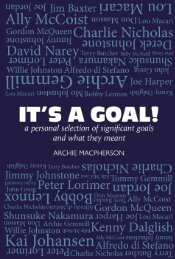Luath Scots Language Learner sampler
This new edition of the Luath Scots Language Learner featuring updated information is suitable as an introductory course or for those interested in reacquainting themselves with the language of childhood and grandparents. There are dictionaries and grammar books but this is the first-ever language course. The book assumes no prior knowledge on the reader's part. Starting from the most basic vocabulary and constructions, the reader is guided step-by-step through Scots vocabulary and the subtleties of grammar and idiom that distinguish Scots from English. An accompanying audio recording conveys the authentic pronunciation, especially important to readers from outside Scotland. The audio recording, which accompanies the Luath Scots Language Learner book, conveys the authentic pronunciation, especially important to readers from outside Scotland. It is suitable as an introductory course or for those interested in reacquainting themselves with the language of childhood and grandparents. There are dictionaries and grammar books but this is the first-ever language course. The book assumes no prior knowledge on the reader's part. Starting from the most basic vocabulary and constructions, the reader is guided step-by-step through Scots vocabulary and the subtleties of grammar and idiom that distinguish Scots from English.
This new edition of the Luath Scots Language Learner featuring updated information is suitable as an introductory course or for those interested in reacquainting themselves with the language of childhood and grandparents. There are dictionaries and grammar books but this is the first-ever language course. The book assumes no prior knowledge on the reader's part. Starting from the most basic vocabulary and constructions, the reader is guided step-by-step through Scots vocabulary and the subtleties of grammar and idiom that distinguish Scots from English. An accompanying audio recording conveys the authentic pronunciation, especially important to readers from outside Scotland.
The audio recording, which accompanies the Luath Scots Language Learner book, conveys the authentic pronunciation, especially important to readers from outside Scotland. It is suitable as an introductory course or for those interested in reacquainting themselves with the language of childhood and grandparents. There are dictionaries and grammar books but this is the first-ever language course. The book assumes no prior knowledge on the reader's part. Starting from the most basic vocabulary and constructions, the reader is guided step-by-step through Scots vocabulary and the subtleties of grammar and idiom that distinguish Scots from English.
- No tags were found...
You also want an ePaper? Increase the reach of your titles
YUMPU automatically turns print PDFs into web optimized ePapers that Google loves.
LUATH SCOTS LANGUAGE LEARNER<br />
from Anglo-Saxon, a predecessor of modern <strong>Scots</strong> that was known to<br />
its own speakers as Inglis. The territory over which this language was<br />
spoken was continually expanding at the expense of Gaelic, also known<br />
as Ersche or Irische. As the royal burghs were established in that same<br />
century, Inglis began to spread through them, and thus grew in<br />
economic and political importance.<br />
In spite of the similarity of names, the language of Scotland’s royal<br />
court was already different from the vernacular tongue spoken in<br />
England. There were two reasons for this: first, that the northern<br />
Anglian tongue had been different from the southern Saxon one from<br />
the very beginning; and second, because in England the language of the<br />
rulers was French, English came under its influence and underwent<br />
changes in vocabulary and pronunciation. Ultimately, <strong>Scots</strong> too was<br />
influenced by French, but at a later time and in different ways. <strong>Scots</strong><br />
was also influenced by Gaelic, by Dutch, by the Scandinavian<br />
languages, and by a different range of borrowed Latin usage. By the<br />
middle of the fourteenth century, the people of England already had<br />
come to regard the people of Lowland Scotland as speaking a language<br />
different from their own. By then, <strong>Scots</strong> had developed as a written<br />
language, and when it began to come into official use during Robert áá’s<br />
reign (NPTN=- NPVM) <strong>Scots</strong> already had an established literary tradition.<br />
After <strong>Scots</strong> came into use alongside Latin as a language of state for<br />
official business, it held that status at least until James îá’s death in<br />
NSORK=During that period it was the language of all citizens outside<br />
Orkney, Shetland and Gaeldom, from the monarch down, and was<br />
used by the parliament, courts, judiciary, universities, schools, civil<br />
service and the various professions. The Lords of the Isles and the other<br />
Gaelic nobility are also known to have been able to use <strong>Scots</strong>, in both<br />
speech and writing, from the fifteenth century onward.<br />
The language was eventually given the name Scottis, a name that<br />
previously had been used to mean Gaelic. The first known reference to<br />
it by that name was in NQVQ, during a particularly outstanding period<br />
for literature when a succession of writers known as the Makars were<br />
producing work in Scottis that was respected throughout Europe. With<br />
English as the language of England, <strong>Scots</strong> and English stood as equals<br />
in their respective countries. Although they had their similarities, it<br />
S


















